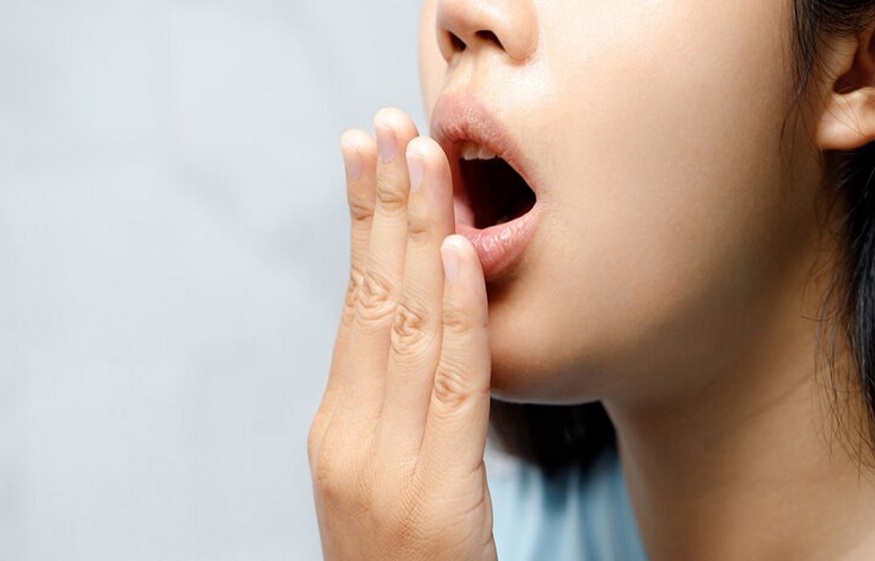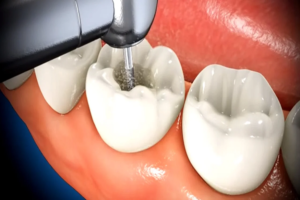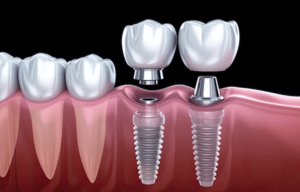Halitosis and Oral Health: The Link You Need to Know
3 min read
Halitosis, also known as bad breath, is a common problem that affects millions of people worldwide. In this blog, we will discuss the link between halitosis and oral health, the different halitosis treatment options available and when to search for “halitosis clinic near me”.
Oral Health and Halitosis
When food particles are left in the mouth, these bacteria break them down, producing volatile sulfur compounds (VSCs), which are responsible for the foul odour associated with halitosis. Poor oral hygiene, such as not brushing or flossing regularly, can lead to a buildup of food particles and bacteria in the mouth, causing bad breath.
Other factors that can contribute to halitosis include dry mouth, gum disease, tooth decay, and oral infections. These conditions can create an environment in which bacteria thrive, leading to bad breath. It is essential to maintain good oral hygiene and visit a halitosis treatment dentist regularly to prevent and treat these conditions.
Medical Conditions
It is also important to note that in some cases, halitosis can be a symptom of an underlying medical condition, such as diabetes, respiratory infections, or liver or kidney disease. If you are experiencing persistent bad breath despite good oral hygiene habits and treatment, it is important to consult with a healthcare professional to rule out any underlying medical conditions.
Halitosis Treatment Options
If you are experiencing bad breath, there are several halitosis treatment options available, including:
- Good Oral Hygiene: Brushing twice a day, flossing daily, and using an antibacterial mouthwash can help to remove food particles and bacteria from the mouth, preventing halitosis.
- Halitosis Laser Treatment: This treatment involves using laser therapy to kill the bacteria that cause bad breath, resulting in fresh breath. So, search for “halitosis treatment dentist near me” when dealing with bad breath.
- Professional Dental Cleaning: A dental cleaning can remove plaque and tartar buildup, which can contribute to bad breath.
- Treating Underlying Dental Issues: Treating gum disease, tooth decay, and oral infections can eliminate the bacteria that cause bad breath.
- Halitosis Clinic: A halitosis clinic specializes in diagnosing and treating bad breath. A dentist who specializes in halitosis can help you determine the underlying cause of your bad breath and develop a personalized treatment plan.
When to Google “Halitosis Treatment Near Me”
If you are looking for halitosis treatment options near you, there are several ways to find a dentist or clinic that specializes in halitosis treatment. You can search online using keywords such as “halitosis treatment dentist,” “halitosis treatment dentist near me,” “halitosis clinic near me,” or “halitosis laser treatment near me.” You can also ask your regular dentist for a referral to a halitosis specialist.
In addition to the treatment options discussed above, there are also some lifestyle changes you can make to help prevent and manage halitosis. These include:
- Drinking Plenty of Water: Staying hydrated can help prevent dry mouth, which can contribute to bad breath.
- Quitting Smoking: Smoking can dry out the mouth and cause bad breath. Quitting smoking can help to eliminate this issue.
- Eating a Balanced Diet: Certain foods, such as onions, garlic, and spicy foods, can cause bad breath. Eating a balanced diet and avoiding foods that trigger bad breath can help manage halitosis.
- Chewing Sugar-Free Gum: Chewing gum can stimulate saliva production, which can help to wash away food particles and bacteria that cause bad breath. Opt for sugar-free gum to avoid contributing to dental decay.
- Avoiding Alcohol and Caffeine: Both alcohol and caffeine can contribute to dry mouth, which can cause bad breath. Limiting your consumption of these beverages can help manage halitosis.
Conclusion:
Maintaining good oral hygiene, visiting a dentist regularly, and treating underlying dental issues can help prevent and treat bad breath. If you are experiencing halitosis, it is essential to seek treatment from a qualified dentist or halitosis specialist. By finding halitosis treatment near you, you can take the necessary steps to improve your oral health and eliminate bad breath.




